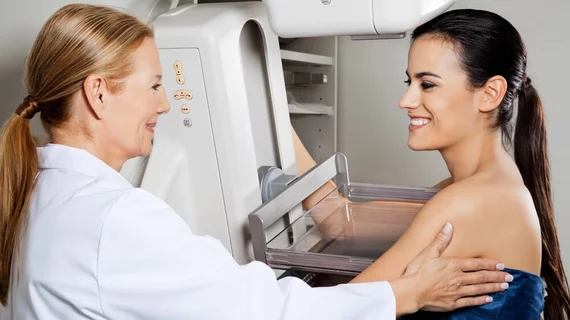RSNA 2018: Researchers see value in mammography screening at age 30 for some women
Annual mammography screening beginning at age 30 may provide value to patients with dense breast tissue, a personal history of breast cancer or a family history of breast cancer, according to new research presented at RSNA 2018 in Chicago.
“Women under 40 have not been the focus of our attention when it comes to breast cancer screening,” author Cindy S. Lee, MD, assistant professor of radiology at NYU Langone Health in New York City, said in a prepared statement. “Everyone is talking about the 40 to 49 range, and not the 30 to 39 age range. It's difficult to study this group because most women in this age range do not get mammograms, but some of these young women have increased risk for breast cancer and may need earlier and/or supplemental screening.”
Lee et al. compared performance metrics associated with screening mammography in women ages 30-39 with dense breasts, a personal history of breast cancer or a family history of breast cancer with the metrics of women ages 40-49 without those specific risk factors.
“Any woman with dense breasts, personal history or family history of breast cancer in any first-degree relative is considered to have increased risk,” Lee said in the same statement.
For the study, data from more than 5.7 million mammograms performed between January 2008 and December 2015 were collected from the National Mammography Database. Overall, women ages 30-34 and 35-39 had much higher cancer detection rates than women who did not.
“Women with at least one of these three risk factors may benefit from screening mammography beginning at age 30, instead of 40,” Lee concluded.

